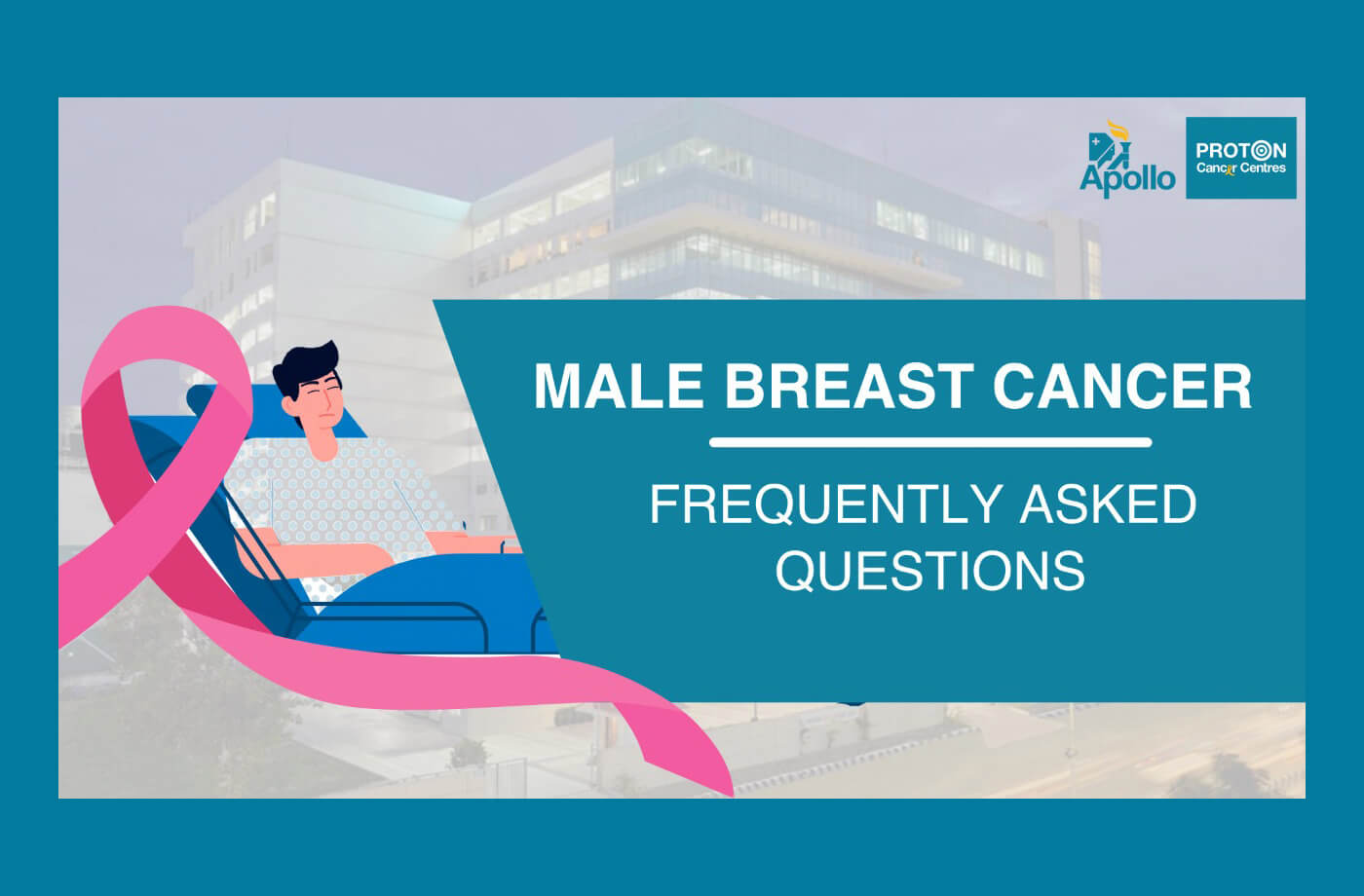What are the factors increasing risk of breast cancer in men
- Any conditions that increase the levels of circulating oestrogen in the body, may increase the risk of developing breast cancer, such as genetically inherited conditions such as Klinefelter syndrome, liver cirrhosis, intake of hormonal medications that increase estrogen levels, etc.
- Prior radiation to the chest wall may increase the person’s risk of developing breast cancer in the future.
- A known family history of breast cancer affecting one or two close family relatives.
- Inheritance of known genetic mutations, related to breast cancer, such as BRCA 1, BRCA 2, etc.
- Just as in the case of women, risk of breast cancer increases with age in men as well!
- Swelling or some sort of injury to a male’s testicles or even surgery to remove the testicles, may increase the risk of developing breast cancer.
- Obesity
What are the symptoms of breast cancer in men
Symptoms in men are similar to that seen in women. They include,
- Lump/swelling/mass in the breast, behind the nipple etc.
- Inward movement of nipple (retraction)
- Blood stained or blackish ooze from the nipple or nipple discharge
- Wound over the nipple-areola complex or breast, that is not healing.
- Enlarged lymph nodes in the underarm or neck
How is breast cancer diagnosed
The tests that are done to evaluate breast complaints in men are also similar to that undergone by women. After a clinical exam by the doctor, you may be advised to undergo tests to image the breast, such as mammogram and/or ultrasound, and in some rare cases, an MRI of the breast may also be required. Next, the lump needs to be sampled so that it can be accurately diagnosed. To do this, you will have to undergo a core biopsy of the suspicious area so that it can be looked at closely under the microscope by the pathologist to determine whether it is a cancer or some other type of lump. In case it is a cancer, your doctor may advise additional biochemical tests on the biopsy specimen to identify the number of hormone receptors (estrogen/ progesterone) and presence of the HER-2 net protein or gene. This information will help us doctors tailor the treatment specifically to your type of cancer, and will determine the overall outlook. The next step is to determine how much the cancer has spread within the body. You may be advised to scan the whole body by CT scans or a PET scan, to do so.The results of the above will help your doctor ‘stage’ the cancer, which will not only guide treatment, but will also inform you regarding how your prognosis.
What is the treatment of breast cancer in men
There are three different treatment modalities, a combination of which can help cure or control the cancer, as the situation may be. These include, systemic therapy options (eg., chemotherapy, targeted therapy, hormonal therapy, etcetera), surgery of the cancerous breast (mastectomy, I.e., removal of the affected breast along with the nipple and the surrounding darker area called areola, and the involved draining lymph nodes), and last but not the least, radiation therapy. In some men, breast conservation, i.e., removal of only the cancerous lump with a surrounding rim of normal tissue may be done, and it will have to be followed by radiation therapy. Your doctor will decide the best sequence and combination of therapies for you, and support you through the journey.
How fatal is breast cancer in men
There is a dictum in breast cancer, “early detection saves lives”, and this holds true for both men and women alike. Earlier detection ensures less radical treatments, and improves chances of cure. Even in advanced stages however, personalised, targeted and apt treatment can ensure control of the disease and improved quality of life.
What can you do to reduce your risk of developing breast cancer
Regular exercise to keep fit, wholesome nutrition, and a balanced diet, is essential to keep diseases at bay, including cancer. Obesity, which is now considered a pandemic, is responsible for almost 13 different types of cancers. One must also have knowledge regarding their family history. If there is a history of cancer in the family, or a member with a known genetic mutation, then it is important to consult a genetic counsellor, have the risks of developing cancer assessed, and then have a customised cancer screening program tailored for you, by your doctor.

Copyright © 2023 Apollo Proton Cancer Centre. All Rights Reserved





